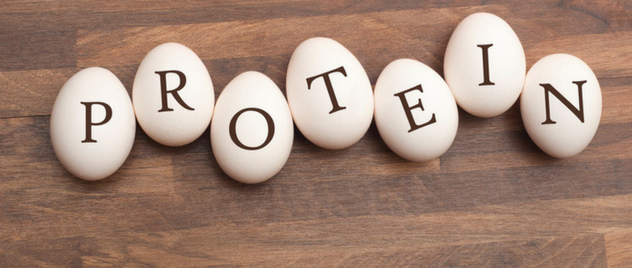Whether your mom or dad is receiving senior services in Chicago from Freedom Home Care or you’re providing their care individually, their diet is of utmost importance—especially the amount of protein they are getting.
This is because proteins are building blocks that contribute to the successful functioning of the entire body. They are used not only to build and repair tissues, including muscles, tendons, skin, and organs but also to make hormones and enzymes.
In addition to helping individuals stay at a healthy weight and absorb key nutrients, proteins also contribute to lower blood pressure and cholesterol, enhanced concentration, higher energy and stabilized blood sugar levels, bone health and learning improvements—things many seniors struggle with as they age.
Research has also found that eating a more protein-packed diet may help reduce the chance of having a stroke and it is also known that those who eat more protein are known to have better bone mass as they age, thus lowering their risk of fractures and osteoporosis.
Protein deficiency, on the other hand, contributes to increased loss of muscle mass and risk for infections, an impaired immune system and prolonged recovery time from injuries.
While they are essential for everyone, protein is important in seniors because studies show that muscle loss (sarcopenia) starts at around 50 years of age and a protein-balanced diet can help counteract it. Because of the muscle loss, seniors require more protein than younger adults.
Where to Start?
First, find out what foods your loved one enjoys eating—not just their meat preference, but in all the food groups—and find ways to incorporate more protein into them. If your parent or grandparent is receiving senior care near Chicago, their caretaker is likely to be full of resources.
Calculate Nutrient Needs
The amount of nutrients each person needs depends on a variety of factors, including age, weight, height, the amount of exercise they’re getting, among others. It is generally recommended that seniors should have at least 45 grams (for women) to 60 grams (for men) each day. To obtain exact numbers, try an online calculator or talk to a registered dietitian.
Search Out Protein-Packed Snacks
Make it a family affair and bake some healthy peanut butter cups or cookies together or drop off some carrot cake truffles or whole-wheat strawberry banana protein muffins for grandma to enjoy when they want something sweet. Buy them some Greek yogurt and oatmeal or give their caretaker a pumpkin protein pancake recipe so their meals don’t get predictable and monotonous.
While these sweet treats are appealing, they shouldn’t be the only high-protein snacks or meals in anyone’s diet. Edamame and mixed nuts—especially almonds, pistachios, cashews—are great snacks to get for someone trying to increase their protein intake, as well as broccoli, lima beans, peas and brussels sprouts. These, as well as beans and cottage cheese, can also be incorporated into meals.
Research Recipes
This is just the beginning of protein-sufficient possibilities. There are more than a few websites offering creative ways to sneak protein into diets and nutritionists suggesting the healthy meats—chicken breast, tilapia, pork tenderloin—and meals. Don’t just add a protein shake and expect it to do all the work—giving a senior that for lunch is not enough. It can be used as a snack, but it’s best not to use them as a meal replacement.
Just remember that too much of something can be just as bad as too little of it and this proves true meat too. Large amounts of processed meats aren’t good for anyone and can lead to cardiovascular disease and Type 2 diabetes and too much protein has been linked to negative effects of those with kidney impairment.
Ask for Advice
If all of this information seems overwhelming, don’t be afraid to get some help! Freedom Home Care offers a variety of Chicago senior home care services including personalized elder care, in-home care and elder advisers who can help give advice and find resources.
Why Protein in Seniors is Important




